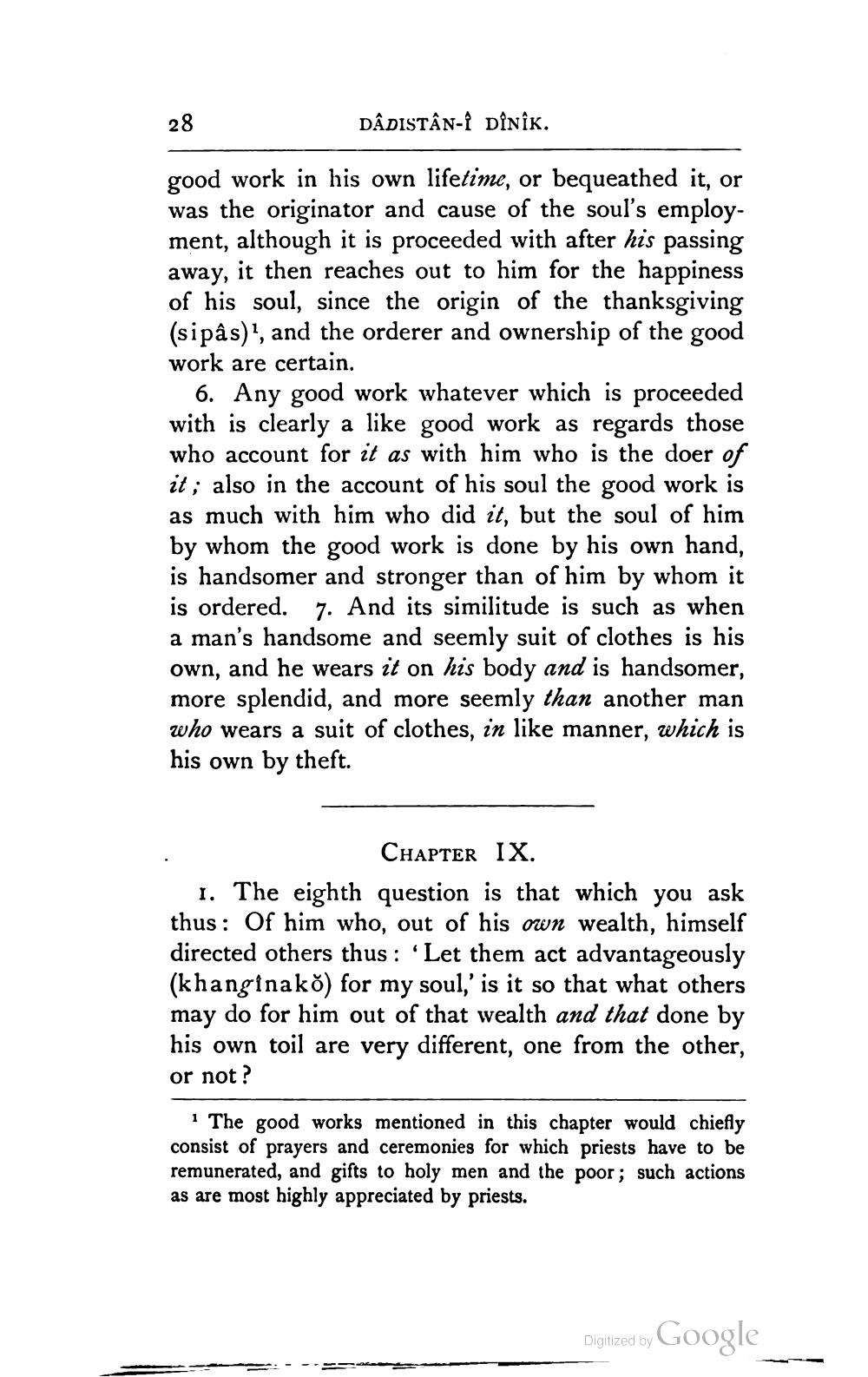________________
28
DÂDISTÂN-I DÎNÎK.
good work in his own lifetime, or bequeathed it, or was the originator and cause of the soul's employment, although it is proceeded with after his passing away, it then reaches out to him for the happiness of his soul, since the origin of the thanksgiving (sipâs)', and the orderer and ownership of the good work are certain.
6. Any good work whatever which is proceeded with is clearly a like good work as regards those who account for it as with him who is the doer of it; also in the account of his soul the good work is as much with him who did it, but the soul of him by whom the good work is done by his own hand, is handsomer and stronger than of him by whom it is ordered. 7. And its similitude is such as when a man's handsome and seemly suit of clothes is his own, and he wears it on his body and is handsomer, more splendid, and more seemly than another man who wears a suit of clothes, in like manner, which is his own by theft.
CHAPTER IX. 1. The eighth question is that which you ask thus: Of him who, out of his own wealth, himself directed others thus : 'Let them act advantageously (khanginakö) for my soul,' is it so that what others may do for him out of that wealth and that done by his own toil are very different, one from the other, or not?
1 The good works mentioned in this chapter would chiefly consist of prayers and ceremonies for which priests have to be remunerated, and gifts to holy men and the poor; such actions as are most highly appreciated by priests.
Digitized by Google




